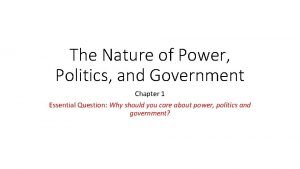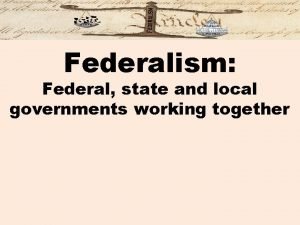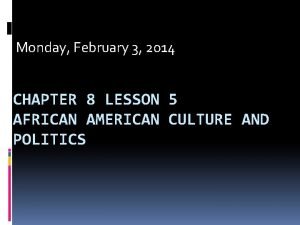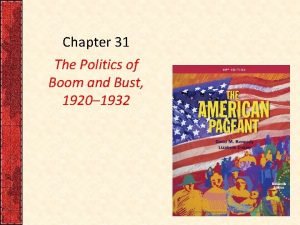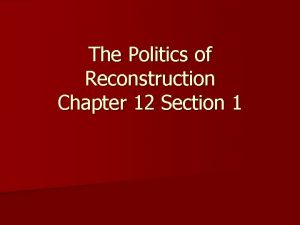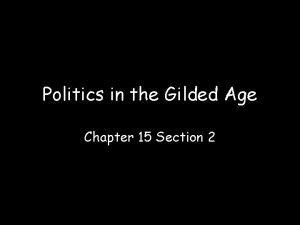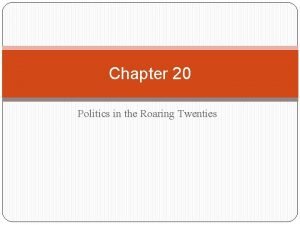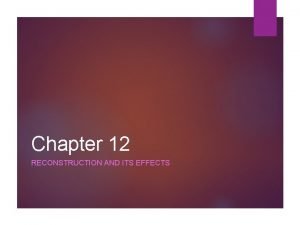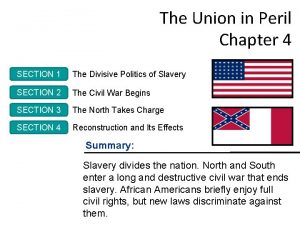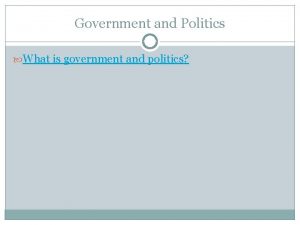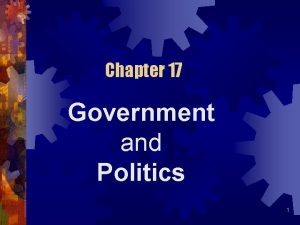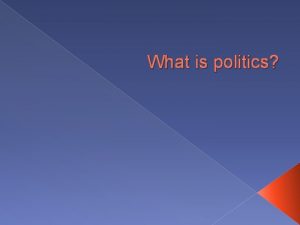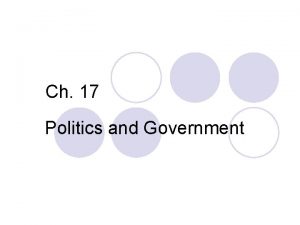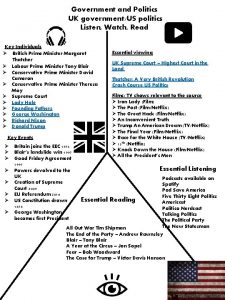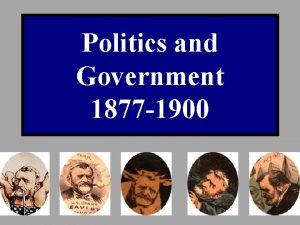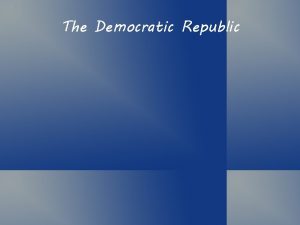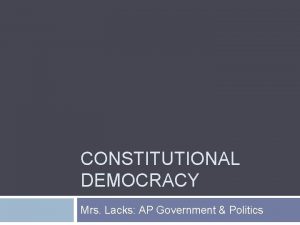Chapter 17 Government and Politics 1 Politics and










- Slides: 10

Chapter 17 Government and Politics 1

Politics and Government • Power is the ability to exercise one’s will over others. To put it another way, whoever can control the behaviour of others is exercising power. Power relations can involve large organisations, small groups, or even people in an intimate association. • There are three basic sources of power within any political system– 2

• Force is the actual or threatened use of coercion to impose one’s will on others. When leaders imprison or even execute political dissidents, they are applying force, so too are terrorists. • Influence refers to the exercise of power through a process of persuasion. A citizen may change his or her position regarding a Supreme Court nominee because of a newspaper editorial, the expert testimony of a law school dean before the Senate 3 Judiciary Committee.

Type of Authority • The term authority refers to power that has been institutionalised and is recognised by the people over whom it is exercised. Sociologists commonly use the term in connection with those who hold legitimate power through elected or publicly acknowledged positions. • Traditional authority (傳統權威): legitimate power is conferred by custom and accepted practice. A king or queen is accepted as ruler of a nation simply by virtue of inheriting the crown; a tribal chief rules because that is the accepted practice. For the traditional leader, 4 authority rests in custom, not in personal

• Legal-rational authority (法理權威): power made legitimate by law. Leaders derive their legal-rational authority from the written rules and regulations of political systems, such as a constitution. (e. g. , US Constitution gives Congress and president the authority to make and enforce laws and policies) • Charismatic authority (魅力權威): power can be legitimised by the charisma of an individual. The term refers to power made legitimate by a leader’s exceptional personal or emotional appeal to his or her followers. Charisma lets a person lead or inspire without relying on set 5

• Political socialisation: socialisation the process by which you acquire political attitudes and develop patterns of political behaviour. • Women in Politics: women continue to be dramatically underrepresented in the halls of government. Sexism has been the most serious barrier to women interested in holding office. Women were not even allowed to vote in national elections until 1920, and subsequent female candidates have had to overcome the prejudices of both men and women regarding women’s 6

• Interest groups (利益團體): is a voluntary association of citizens who attempt to influence public policy. The National Organisation for Women is considered an interest group, so too are the Juvenile Diabetes Foundation and the National Rifle Association. Many interest groups (often known as lobbies) lobbies are national in scope and address a wide array of social, economic, and political issues. 7

8

Models of Power Structure • Power elite (權力精英) model: power rested in the hands of a few, both inside and outside government (Mills’s Model vs. Domhoff’s Model) • Pluralist Model: many conflicting groups within the community have access to government, so that no single group is dominant. 9

10
 Chapter 20 whose government
Chapter 20 whose government Unit 1 government study guide
Unit 1 government study guide The nature of power politics and government
The nature of power politics and government National government vs federal government
National government vs federal government Chapter 8 lesson 5 african american culture and politics
Chapter 8 lesson 5 african american culture and politics Chapter 31 the politics of boom and bust
Chapter 31 the politics of boom and bust The politics of reconstruction chapter 12 section 1
The politics of reconstruction chapter 12 section 1 Pendleton civil service act
Pendleton civil service act Chapter 20 politics of the roaring twenties answer key
Chapter 20 politics of the roaring twenties answer key Chapter 12 section 1 the politics of reconstruction
Chapter 12 section 1 the politics of reconstruction Chapter 4 section 1 the divisive politics of slavery
Chapter 4 section 1 the divisive politics of slavery


